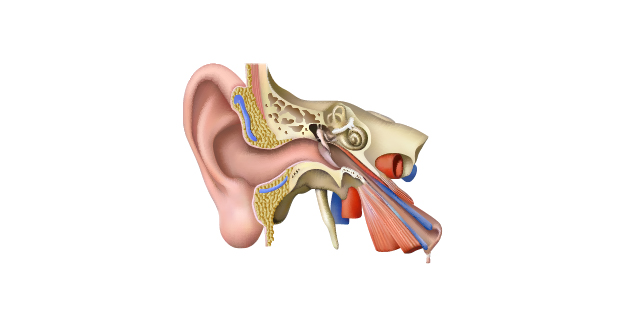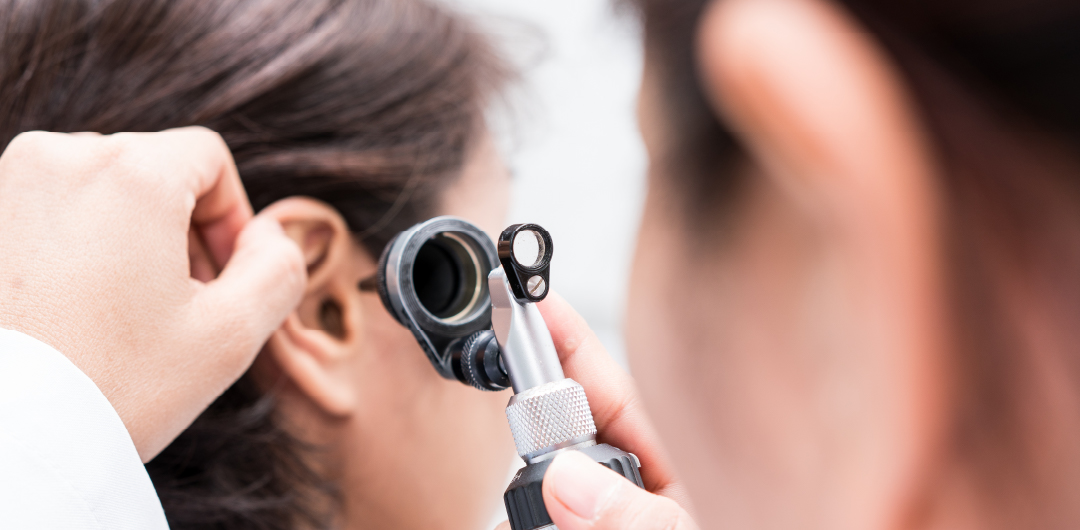Even if your family—or, in the case of your children, your spouse’s family—does not have a history of hearing loss, you may still have a recessive gene for hearing loss or a hearing-loss-related disorder. It’s crucial to get tested to rule out any potential genetic mutations or disorders in the case of hearing loss and to determine your risk for hearing loss in the future.
This blog explains some of the common forms of genetic hearing loss and how genetic testing can explain or prevent hearing loss for you and your family members.
What Causes Genetic Hearing Loss?
Just as there are genes that determine the texture of someone’s hair or the color of their eyes, there are genes that determine the function and development of the ear. In fact, there are hundreds of genes dedicated to hearing. Genes that form improperly are known as mutations. Genetic mutations often lead to improper ear function, including loss of hearing.
Some of these mutations are hereditary, meaning that the mutated genes are carried by parents who either also have the mutation or carry the mutation without having it themselves. In other words, someone can have genetic hearing loss even if their parents do not have hearing loss.

Types of Genetic Hearing Loss
There are multiple types of genetic hearing loss. The most common kinds of hearing loss are conductive, sensorineural, mixed, syndromic, nonsyndromic, prelingual, and postlingual.
Conductive hearing loss refers to hearing loss that stems from the outer and middle parts of the ear. While conductive hearing loss may result from an earwax buildup, fluid in the ear, or infection, it may also result from improper or partial development of the middle or outer ear.
Sensorineural hearing loss (SNHL) occurs in the inner ear, either due to damage to the inner ear itself or an issue with the way the inner ear communicates with the brain. Sensorineural hearing loss may be caused by damage or infection of the inner ear, but it is often caused by hereditary mutations. Unlike in conductive hearing loss, medication and surgery are often insufficient to relieve SNHL, but hearing aids can assist with hearing.
Mixed hearing loss is what it sounds like—it is a mix of conductive and sensorineural hearing loss. This may occur for any of the reasons listed above for SNHL and conductive hearing loss.
Syndromic hearing loss occurs in combination with other medical conditions, such as the presence of a goiter or expansion of the thyroid gland in Pendred syndrome. Nonsyndromic hearing loss, which is more common, occurs without the presence of any other medical conditions or anomalies.
Prelingual and postlingual hearing loss occurs before and after the affected individual acquires language skills, respectively. Different kinds of conditions which cause hearing loss will lead to either pre- or postlingual hearing loss depending on when the hearing loss occurs.
How Does Genetic Testing for Hearing Loss Work?
Genetic testing for hearing loss is similar to other genetic or DNA testing forms. Typically, the laboratory will collect a DNA sample in the form of a blood sample or a cheek swab. Because the causes of genetic hearing loss lie in one’s DNA, it only requires a sample of genetic material to determine what, if any, genetic mutations are present.
Genetic testing for hearing loss will only be able to determine if there are mutations in the genes that determine hearing ability and ear function. This means that if one’s hearing loss is attributable to another source, such as damage or fluid buildup in the ear canal, a genetic test will not determine the cause. Because of this, genetic testing for hearing loss is typically reserved for after individuals undergo physical examinations.

What Does a Genetic Hearing Loss Panel Test for?
Genetic hearing loss tests have different panels, meaning they look at different amounts and kinds of genes. Most genetic hearing loss tests look at more than one hundred genes that may be the reason for hearing loss.
This means that these tests can determine whether an individual’s hearing loss is due to a specific genetic or chromosomal mutation or if it is the result of a hereditary syndrome, such as Pendred or Usher syndrome.
Genetic Hearing Loss Testing at OnPoint Labs
Genetic hearing loss testing provides valuable information about potential genetic mutations or disorders. It ultimately brings the opportunity for you and your family members to be proactive about preserving hearing. Because genetic hearing defects have become one of the most prevalent chronic conditions in children, it is important to take action with OnPoint Lab’s Genetic Hearing Loss test, which assesses the genetic composition in 174 genes for mutations related to hearing loss.
If you are seeking a genetic hearing loss test from a capable medical diagnostic testing company that delivers fast results, OnPoint Lab’s team of experts offers the best resources and services in the Greater Houston area. For more information about genetic hearing loss assessments, visit our website and schedule your appointment today.


